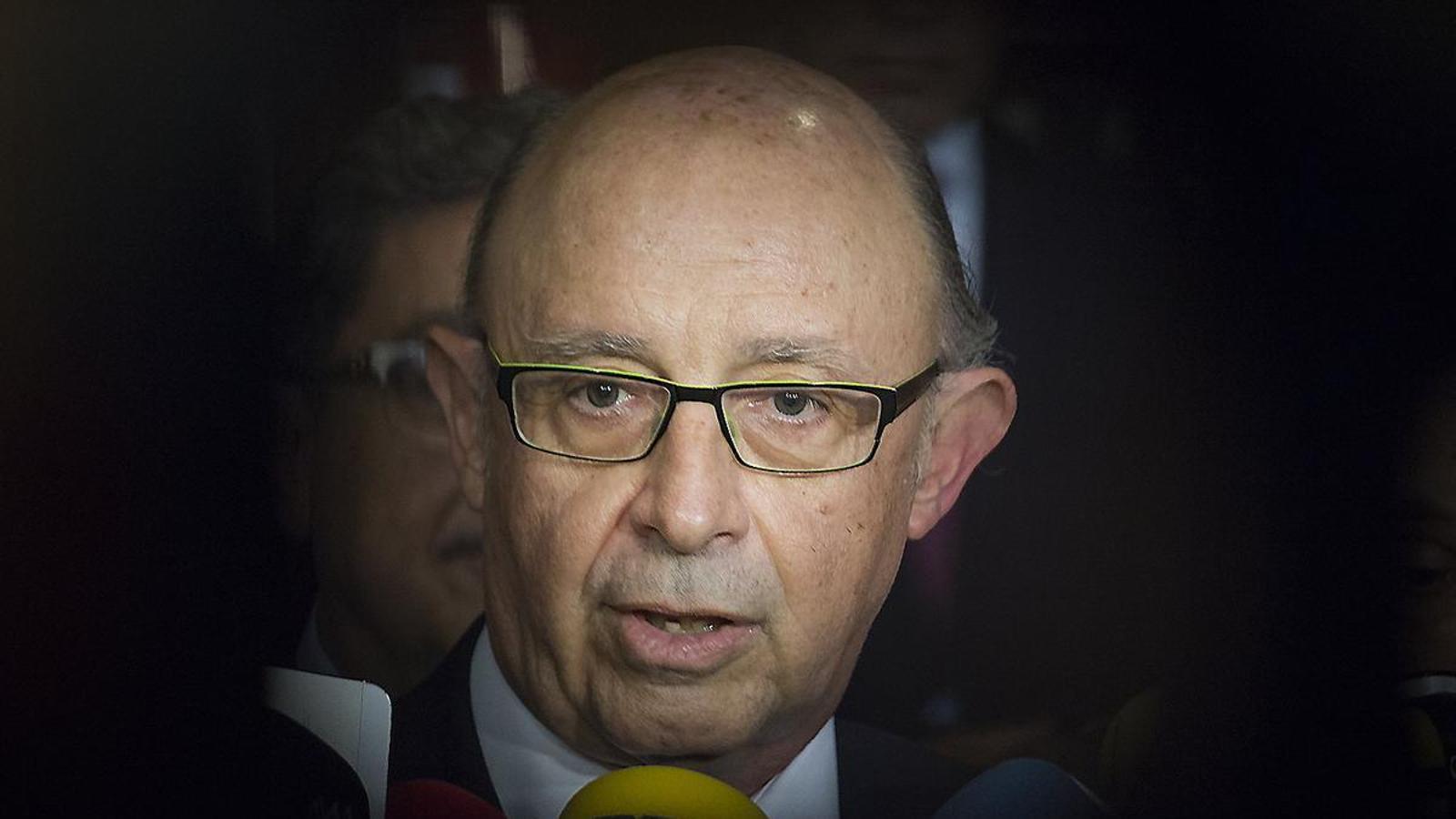

«The mafia is a mountain of shit» –Peppino Impastato
The outbreak of the Montoro case brings together all the immutable ingredients of the traditional manger, stripping away every strand of corruption that is more systemic than systematic, and shaking the political-emotional counter to the provisional benefit of Vox. As always, fashions pass, and only the rubble remains, amidst an oblivion that only cracks when a new mess erupts. Then we look in the rearview mirror, remember where we came from, and wonder what the hell has never changed. In memory corner, regarding the judicial state of affairs, we must remember that three former ministers were convicted and imprisoned from the Aznar regime—Rodrigo Rato, Eduardo Zaplana, Jaume Matas—and that others were also investigated, with cases closed or narrowly acquitted. From the Felipe González administration, with a firm judicial signature, the following were convicted, among others: a Minister of the Interior, the party's finance coordinator, several bankers, the brother of Vice President Alfonso Guerra, and CESID sewer errand boys—and an entire Minister of Defense, Nar, resigned, all in the Royal Household. From Mariano Rajoy's governments, Montoro is currently in the air, but Fernández Díaz is awaiting trial, where he is facing a 15-year prison sentence for patriot While his Minister of Health was already convicted, for profit, in the Gürtel case. In the preliminary indictment phase alone, three people have already left Sánchez's Peugeot—two of whom were party organizational secretaries—and now only one remains at the wheel, named Pedro. That's how things stand. As if we forget every day that the flagship of the series is called Juan Carlos I and still lives like a king in Abu Dhabi.
And the Montoro affair has only just begun, when the moniker "Economic Team" has become too polysemous. And all the elements of those who, posing as a supposed lobby, are already accused of committing seven serious crimes. There are other major details—high-flying companies such as gas, electricity, and gambling; shameful drafting of the law on demand; tax reports doctored to favor judicial impunity for the PP; and a patriotic police force, also a prosecutor's office, with a crude and botched dual use: long-standing enemies and internal adversaries within the PP itself. And other nuances that seem minor but are not: a peripheral judge—far from the central judicial district—who has investigated for seven years, following a strange email gleaned from another investigation; an anti-corruption prosecutor who warned of this and who was refused to listen at the time; a journalist like Carlos Alsina now remembering how the minister spent his money –"who understood power as a way to reward favors, benefit those close to him, and punish those who didn't agree, I don't need a judge to tell me that"–, and a besieged journalist from ABC, Javier Chicote, who is best when the soonest is best –which is when it gets worse… fraud. The rest, the Montoro newspaper archives. It is not pointless to remember today how he boasted of knowing about the misfortunes of the Pujol clan since 2000. Recalling how he protected three thousand millionaire fraudsters by plotting the 2012 tax amnesty, that mass pardon declared void by the Constitutional Court with a judicial annulment is quite insulting. And to relive how he applied that double-edged classist fiscal sadism, with the chainsaw of the worst antisocial cuts and the largest tax increases for the middle and working classes, while the banks were bailed out and the same old economic elites benefited with tax cuts of up to 85%, without knowing it. Or to remember how in 2013 the tax inspector who dared to fine CEMEX 455 million for tax fraud was abruptly dismissed—a penalty that the Supreme Court eventually upheld. Specifically, in November 2023.
Perhaps that's why the unexpected Montoro case will once again stir up all the issues and everything that hasn't been done and is now taking its toll and causing a fracture. The concurrent tragedy is that there's nothing new under a leaden sky. If we go back just a decade, the analysis at the time revealed five intertwined corrupting dynamics that left us with a panorama somewhere between the He doesn't know by Andrea Camilieri, the Crematorium by Rafa Chirbes and the Sicily without deaths Guillermo Frontera's. Five black holes through which almost everything leaks, robbing us of our present and future: the irregular financing of political parties, whose wave of urban speculation we are still suffering the dire consequences of, the private procurement of public works, the vast industry of tax fraud, and the global economy of crime. Between the Gürtel ruling and eight gunshots on Consell de Cent Street last week, let's put it this way, everything has happened and we've seen all kinds of things. As if it were yesterday, too. Because the phrase "under collusive capitalism, corruption is a permanent structural temptation" was uttered in July 2016 in the Catalan Parliament. It was expressed by prosecutor Sánchez Ulled, then the anti-corruption delegate in Barcelona, at the Commission for the Study of Measures to Combat Corruption for Democratic Regeneration. That commission was chaired by former MP Benet Salellas. The prosecutor began his speech by stating: "I understand that inviting me to this committee is the first confirmation of a failure; the failure of institutions to prevent and, at the same time, combat political corruption." As if it were yesterday, then. Eight seasons later.
Whatever the color, one thing never changes. Whether or not corruption gives us a summer respite will depend on the next leaked report from the UCO (University of Cordoba). A paradoxical anecdote: during the most murky years of the Basque conflict—where Koldo Garcia's dark career began—one of Europe's finest criminal lawyers argued during a trial that the highest levels of the Civil Guard always operated as "a state within a state." At the end of the trial, in the impossible squadrons of the palace corridors, a worthy senior officer present in the courtroom approached him and refuted his statement: "You're wrong; we're not a state within a state. We are the state." And that's it. In the nineteenth century, even as if it were yesterday, it would seem as if the political alternation in the Kingdom of Spain was decided more by corruption – González and Rajoy, and Sánchez in the waiting line – than by the vote, in Fèlix Riera's apt reflection on the political rotation in the nineteenth century, still mediated by scandal. In reality, we are on the wheel, in déjà vu and in eternal return, which should confront the dunghill of corruption with its antonym par excellence: political democracy and the ethics of common decency. were still yesterday.

